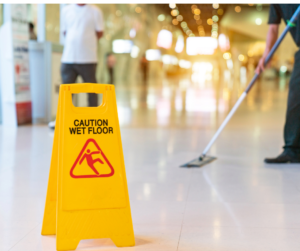Virginia state law establishes that landlords have a legal duty to use ordinary care to ensure their tenants are reasonably safe. This not only includes apartment units, but also pools, stairwells, parking lots, and other common areas. Landlords also have the duty to take proper security precautions to prevent third-party crimes from happening on their property.
The most common premises liability injuries are slip and falls, dog bites, and drownings in swimming pools.
The common-law classification to determine the level of legal responsibility of the landlord in these cases places the victims into one of three categories. These include invitees, licensees, and trespassers.
The duty of care you are ow ed differs based on which of these categories you fall into. Invitees may be paying tenants and prospective tenants. People who have permission to be on the property as they are of benefit to the owners are owed a higher duty of care. In these cases landlords typically have a duty of reasonable care.
ed differs based on which of these categories you fall into. Invitees may be paying tenants and prospective tenants. People who have permission to be on the property as they are of benefit to the owners are owed a higher duty of care. In these cases landlords typically have a duty of reasonable care.
Licensees are typically guests of an apartment tenant, these people indirectly have permission to be on the property. Their presence does not directly benefit the landlord, therefore there may only be a duty to warn them about latent defects on their property (like a broken floorboard).
A trespasser is someone who did not have direct nor indirect permission to be on the land and does not benefit the owner. In these cases the landlord usually does not owe any legal duty of care to these individuals.
Landlords may be financially responsible for damages if they had prior knowledge about the hazard that caused the victim’s injury. Therefore victims must usually establish knowledge by a preponderance of the evidence (meaning there is a greater than 50% chance that the claim is true).
Premises liability claims can be complex, if you have been in an accident due to the negligence of a landlord, call the personal injury attorneys at ReidGoodwin today for a free, no obligation consultation at 804-415-7800.
